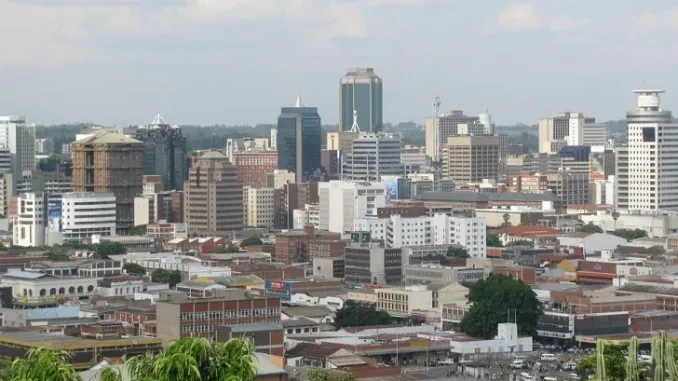
The draft constitution is out and Zimbabweans will, before year-end, go to a plebiscite to endorse or reject it.
But before the crucial referendum, it is paramount that the electorate thoroughly study and analyse the proposed new governance charter and make sure that we will have a constitution with constitutionalism.
Most political pundits have concluded that the draft charter is more of a compromise document by the parties in the wobbly inclusive government Zanu PF and the MDC formations.
They argue that it was crafted to deal with internal party politics across the divide. Zanu PF was presented with a solution to President Robert Mugabes succession battle through the introduction of running mates while the MDC formations got provisions curtailing presidential powers and a watered-down devolution, among others.
The draft has several progressive provisions that encourage democracy, guaranteeing civil liberties, keeping in check the security service, upholding of the rule of law and gender mainstreaming.
But, certainly, the draft is an appeasement document, just as the 1979 ceasefire Lancaster House Conference constitution that has been in force since Independence, albeit with 19 amendments.
Zimbabweans should seriously ask themselves if the country deserves this kind of draft constitution whose sole purpose, in our view, is to deal with current political problems, rather than posterity.
The electorate should ask if their views, aspirations and dreams were captured in the draft charter during the Copac outreach programme, or they were sacrificed on the altar of political expediency.
- Chamisa under fire over US$120K donation
- Mavhunga puts DeMbare into Chibuku quarterfinals
- Pension funds bet on Cabora Bassa oilfields
- Councils defy govt fire tender directive
Keep Reading
The electorate and other stakeholders still have a chance to demand a constitution they deserve before a referendum takes place. We should speak out and demand our rights before and during the Second All-Stakeholders Conference next month.
The constitution-making process has presented us with the opportunity to put a stop to arbitrary rule, subjugation by a greedy political elite, corruption and trampling of civil liberties, among other vices and ills.
We have to end a Gestapo state where the mighty and the rich turn the country into a prison where citizens became inmates. But this can only end if we demand a people-driven constitution which captures where the country came from and where it is going, the dreams and aspirations of the nation.
In a recent paper titled Zimbabwe: Constitution without constitutionalism, political analyst Alex Magaisa argued that a constitution is affected by the manner in which it is created.
He wrote that a wider and more inclusive process of constitutional change could pave the way for wider political and economic transformation in the country, in the same way that the Convention for A Democratic South Africa talks ushered in change in South Africa in 1994.
It is generally accepted that in a constitutional democracy the authority of the majority is limited by legal and institutional arrangements in order to protect the rights of minorities and individuals, wrote Magaisa.
The system is expected to ensure that while the majority has the authority to form the government and rule, the rights of minorities are also taken into account. The constitution is the basic document that provides for the basic legal and institutional structures for the exercise of State power and its relationship with the citizens.
Does the draft constitution capture what Magaisa wrote about? Is it for posterity or a political appeasement charter between the three ruling parties?
Our challenge as a nation is to debate and analyse the draft and come up with an informed decision when we go to the referendum. We must decide our destiny by making informed decisions and choices.











